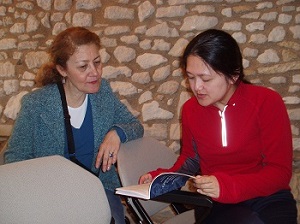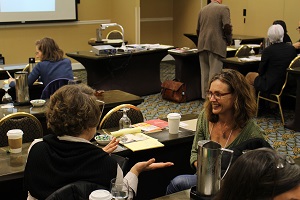
The Oxford Tutorial
Adapted for:
The Advanced Seminar at the September 2019 Critical Thinking Educators and Administrators Academy
Compton Gardens and Conference Center
312 N. Main St.
Bentonville, AR 72712
There is a significant convergence between the best practices of the classic Oxford Tutorial and the framework for teaching critical thinking constructed, over the last four decades, by Foundation for Critical Thinking Fellows and Scholars. Both approaches – the traditional Oxford Tutorial and the emergent Critical Thinking instructional framework – emphasize: 
 Teaching that requires students to read, write, listen, and speak critically.
Teaching that requires students to read, write, listen, and speak critically. 
The same processes are used for deep learning and useful contextualization at any level of stud,y for any scholar with a disinterested approach to learning and scholarship. Therefore, these same processes – namely, critical reading, critical writing, critical speaking, and critical listening – form the core learning processes in all of our academies. This format enables scholars to go further into the concepts of critical thinking in order to better and more effectively contextualize these concepts within academic subjects, professions, and throughout human life.
Consider the following Oxford Tutorial teaching strategies adapted to a class size of twenty-five:
 In the traditional one-on-one setting, the tutor might assign the tutee to draft a short essay on a key concept or question relevant to learning some dimension of content. In a one-on-twenty-five setting, the instructor might assign the same essay to the class as a whole.
In the traditional one-on-one setting, the tutor might assign the tutee to draft a short essay on a key concept or question relevant to learning some dimension of content. In a one-on-twenty-five setting, the instructor might assign the same essay to the class as a whole. In the Advanced Seminar we shall function in group Oxford Tutorial format, which will help participants experience a variety of ways in which this design can be made practical.
In both the Oxford Tutorial method of teaching and the evolving Teaching for Critical Thinking framework, students are assigned regular work that forces them to become engaged in thinking systematically through a curriculum. The result is that students learn how to learn: how to read well, to write well, to speak well, to listen well, and, in sum, to think well.
The main strength of the Oxford Tutorial is not in a precise set  of formal arrangements, but in the tutor’s ability to adapt arrangements to accomplish important academic, intellectual goals.
of formal arrangements, but in the tutor’s ability to adapt arrangements to accomplish important academic, intellectual goals.
The methods of teaching for critical thinking embody rich, powerful pedagogical strategies that approximate the means and ends of the Oxford Tutorial approach. Seeing and experiencing some of the most powerful of these alternative teaching structures will be a principal goal of the Academy.
312 N. Main St.
Bentonville, AR 72712